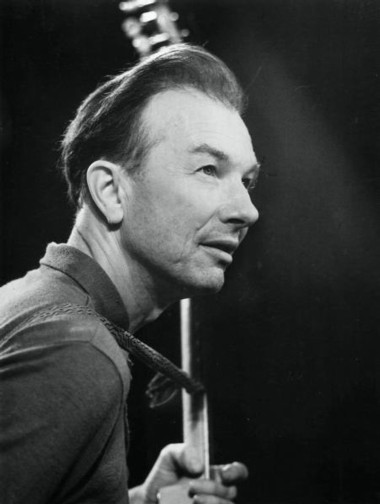Singing for Seeger
Is it just us, or did it seem to you that almost every single person in the Valley had some sort of personal response to the recent death of Pete Seeger—an anecdote about a Seeger song that touched them; a memory of a Seeger performance they’d seen; even, in a surprisingly high number of cases, reminiscences of having met the man himself at some rally or demonstration or hootenanny?
This weekend, Seeger fans will gather for some more reminiscing—and, of course, singing—at a celebration in Amherst. The free gathering, which will feature a number of songleaders from local folkie/activist circles, takes place on Sunday, Feb. 16, from 7 to 9:30 p.m. at First Congregational Church, 165 Main St. in Amherst. Participants are asked to bring a copy of Rise Up Singing, considered by many to be the gold standard of American folk songbooks. (But don’t worry if you don’t have one; it seems a safe bet that this will be a share-y crowd.)
For more information, email AlanCSax@gmail.com or RAsongbook@gmail.com.
Petal Powers
Amherst’s Hitchcock Center for the Environment has taken a step closer to winning Living Building Challenge, or LBC, certification—the highest bar in green building certification—for the new facility it plans to build on the Hampshire College campus.
Last week, Hitchcock announced that it’s completed the design phase on the planned new 8,500-square-foot building. The project, designed by designLAB Architects in Boston, aims to meet LBC’s strict criteria, which evaluate projects in seven areas (or what the organization calls “petals”): site, water, energy, health, materials, equity and beauty. To win certification, buildings must, among other criteria, have net zero water and energy use, avoid development on ecologically sensitive land, support a pedestrian-friendly community, and avoid “red list” building materials found to be harmful, such as lead, PVC and mercury.
The project is an apt one for Hitchcock, given its educational mission. “Not only have we found a new ideal site with abundant natural amenities to strengthen our outdoor learning programs, we have an incredible design team who will create a building serving as a one-of-a-kind educational laboratory to demonstrate how we can preserve a habitable plant,” Julie Johnson, Hitchcock’s executive director, said in announcing the completed design.
On Screen: The Lives of Women
Women in an Afghan prison; how guns change the lives of women in America; an Israeli girl pressured to marry her dead sister’s husband to keep him from leaving the country with her mother’s only grandchild; the only girl on an otherwise all-male wrestling team. What does it mean to be a woman in these and other situations depicted in movies to be shown at the 23rd Annual Women’s Film Festival, a project of the Women’s Freedom Center?
Then there is How to Lose Your Virginity, billed as “an eye-opening and irreverent documentary exploring why female virginity is still so valued in our hyper-sexualized society.”
Four feature films, 17 documentaries and 11 shorts, all directed by women, will be shown at the festival, which runs March 7-16 at the New England Youth Theatre, 100 Flat Street, Brattleboro. Things get underway at 7 p.m. Friday, March 7 with a gala (admission $25) featuring the film Wonder Women! The Untold Story of American Superheroines; attendees are invited to wear a costume representing their favorite superheroines/heroes, real or made up. Film tickets are $8, $7 for students/ seniors; a five-film pass is $35. To buy tickets or for more information, go to womensfreedomcenter.net or call (802) 257-7364.
Worth Quoting
“Despite voter approval, despite the hard and good work of the DPH in developing regulations and overseeing the process of licensing, the Massachusetts model does not contain any provisions for dosage, administering the drug, or other basic elements that would be contained in a prescription for another medication that has gone through rigorous clinical trials.”
—Dr. Ronald W. Dunlap, president of the Mass. Medical Society, on the organization’s concerns about the legalization of medical marijuana. Late last month, the Mass. Department of Public Health awarded licenses to 20 medical marijuana dispensaries around the state, including one in Holyoke and one in Northampton.
By the Numbers
13: That’s the percentage by which the number of abortions in the U.S. declined between 2008 and 2011, according to a study by the Guttmacher Institute. In 2011, the most recent year for which figures are available, there were 16.9 abortions per 1,000 women, the lowest number since 1973, when the Roe vs. Wade decision legalized abortion, the study found. The researchers said the recession may have played a part, since people are more careful to avoid pregnancy when the economy is bad. They also said new methods of birth control that are more resistant to user error than pills and condoms may have contributed to the drop.
The researchers said the decrease does not seem to be related to restrictive state abortion laws, many of which passed after the time in question. But it may be related to the closure of 50 abortion clinics between 2008 and 2011, they said. According to the Institute, Massachusetts is one of only 10 states in which most women—75 percent or more—live in a county with a pregnancy termination clinic.



